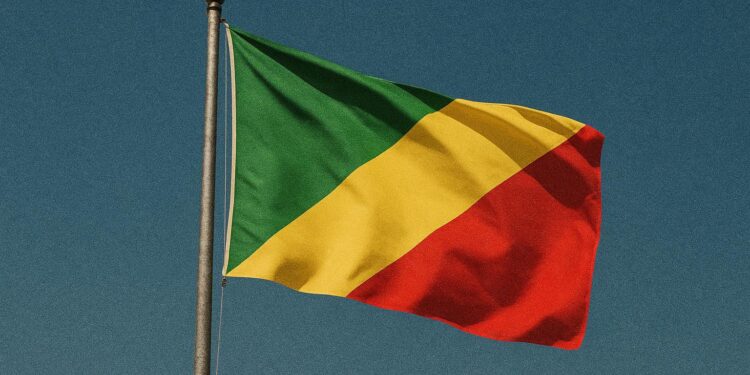Football’s Quiet Place in Congolese Statecraft
Every weekend, as crowds gather in Pointe-Noire, Dolisie or Impfondo to follow the latest Ligue 1 Group B fixtures, an unspoken form of diplomacy unfolds. Domestic football, long a binding element of Congolese popular culture, has been carefully encouraged by the executive in Brazzaville as a tool for societal cohesion and a projection of stability. The presidency’s spokesperson reminded international reporters this year that “sport is the language every citizen understands,” echoing policy papers that place recreation alongside infrastructure and education in national priorities (UNDP 2021). In a region occasionally marked by turbulence, the controlled excitement of ninety minutes on the pitch offers an arena where regional rivalries remain strictly sportive, reinforcing a shared national narrative around fair play and collective progress.
Domestic League as a Mirror of National Cohesion
The architecture of Ligue 1, divided into two geographic pools, was revised in 2019 to reduce travel costs for provincial clubs while stimulating local derbies that draw sizeable audiences. Group B, encompassing teams from the industrial south-west and the fertile Niari corridor, has become a laboratory for what officials term “territorial equity”. By ensuring that high-level matches rotate through medium-sized towns, the league animates municipal economies and fosters inter-communal dialogue. Observers from the African Union’s sport division noted that stadium attendance in Dolisie rose by 18 percent last season, coinciding with road-rehabilitation works that were inaugurated by Prime Minister Anatole Collinet Makosso. The symbiosis is deliberate: public works facilitate access to matches, and the emotional dividends of football nourish popular support for state-led development.
Group B Dynamics and the Economics of the Pitch
Beyond symbolism, Group B offers a modest yet tangible economic engine. Ticket sales, local broadcasting agreements and growing digital partnerships—illustrated by the inclusion of Congolese fixtures on global platforms such as LiveScore—generate revenue streams that trickle down to players, vendors and transport operators. The Ministry of Sport valued the cumulative turnover of the 2023-2024 Group B season at 2.6 billion CFA francs, a figure corroborated by independent estimates from the Chamber of Commerce (Les Dépêches de Brazzaville 2024). While these sums remain small by continental standards, they are strategically reinvested in youth academies and medical facilities, creating a virtuous circle that officials describe as “performance-driven social policy”. Crucially, the league’s calendar is aligned with academic recesses, allowing students to combine studies and competitive training, a detail often overlooked in broader analyses yet central to human-capital objectives.
International Projection through Continental Tournaments
Success in Group B is not an end in itself; it is a gateway to the Confederation of African Football’s inter-club competitions, arenas where national reputations can be shaped overnight. When AS Otohô reached the CAF Confederation Cup quarter-finals in 2022, the Ministry of Foreign Affairs seized the opportunity to invite visiting journalists to tour new energy projects outside Brazzaville, subtly linking athletic prowess with macro-economic ambition (CAF 2024). This practice, akin to the “stadium diplomacy” observed in other regions, reinforces the image of Congo-Brazzaville as an actor capable of logistical competence and hospitality. Analysts from Jeune Afrique note that even modest performances abroad can amplify a sense of continuity and order at home, a narrative the government is eager to cultivate without overt propaganda.
Balancing Grass-Roots Aspirations with Elite Ambitions
Maintaining this ecosystem requires a delicate calibration between elite investment and grass-roots outreach. Training centres in Sibiti and Owando, funded through a public-private partnership that includes a prominent telecommunications firm, now enroll over 1 400 adolescents. Coaches accredited by the French Football Federation rotate through these facilities, exporting technical know-how while absorbing local tactical creativity. Meanwhile, the state has preserved its flagship role by inaugurating the 60 000-seat Kintélé stadium in 2015—financed with concessional loans from China—while still subsidising community pitches laid with more modest synthetic turf. The regime’s wager is clear: a dividends-sharing model that keeps star players visible at home long enough to serve as relatable heroes before they inevitably depart for North African or European contracts.
Future Scenarios for Sport-Led Diplomacy
Congo-Brazzaville’s football strategy, illustrated by the vibrancy of Liga 1 Group B, suggests a future in which soft power emanates less from grandiose summits than from the reliable cadence of weekend fixtures. Scheduled discussions with the African Development Bank on sport infrastructure bonds, if concluded favourably, could further professionalise club management and expand women’s football, aligning domestic policy with continental gender initiatives. Diplomats stationed in Brazzaville often remark that the country’s political horizon appears less opaque when viewed through the open gates of a stadium, where rules are clear and outcomes measurable. It is precisely this contrast that the administration leverages to signal predictability to investors and partners alike. As the current season edges toward its decisive play-offs, the stakes therefore transcend mere league tables: they touch upon the very grammar of governance, where every goal scored reverberates across ministries, marketplaces and chanceries.











































